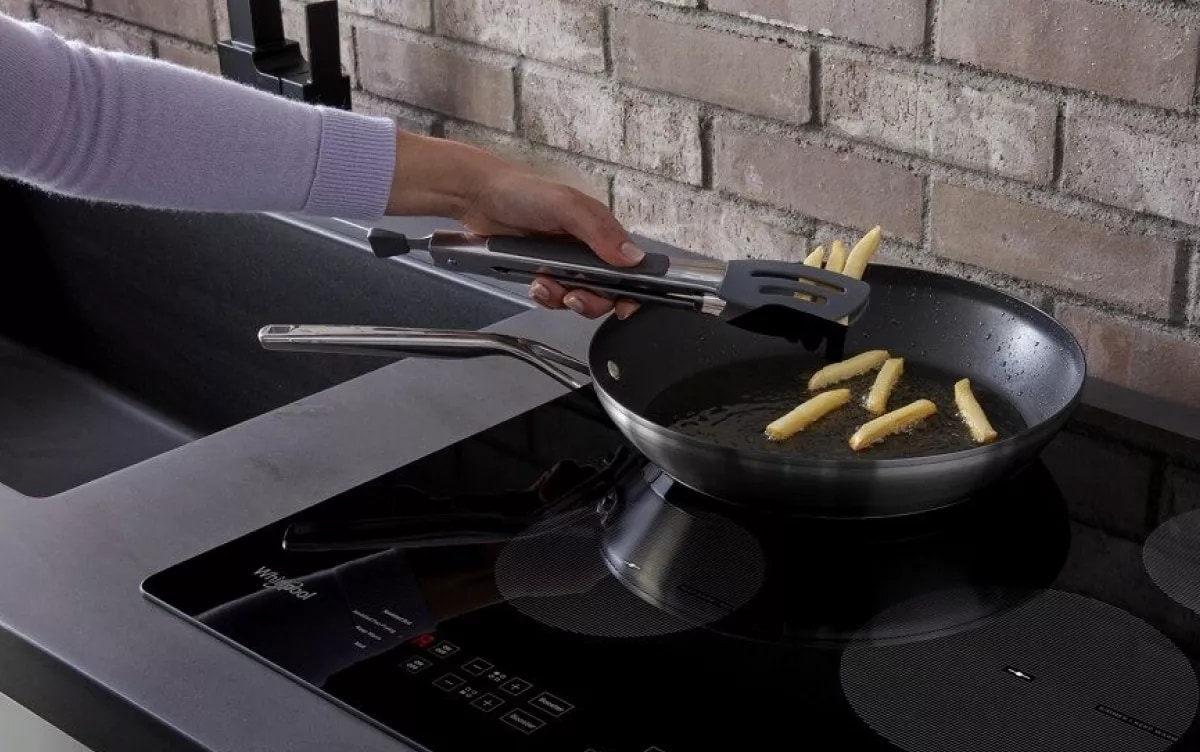In the ever-evolving world of culinary arts, understanding the relationship between cast iron and magnetic induction is crucial for kitchen professionals. This knowledge not only enhances cooking techniques but also ensures the longevity and efficiency of your cookware. As we delve into this topic, we'll explore how these two elements interact and the benefits they bring to a professional kitchen setting.

Understanding Cast Iron
Cast iron has been a staple in kitchens for centuries. Known for its durability and superior heat retention, cast iron cookware is favored by chefs and home cooks alike. However, its compatibility with modern cooking technologies, such as magnetic induction, has sparked debate and interest.
The unique properties of cast iron, including its ability to maintain consistent heat and develop a natural non-stick surface, make it an ideal choice for a variety of cooking techniques. From searing steaks to baking bread, the versatility of cast iron is unmatched. But how does it fare with the precision of induction cooking?
The Science Behind Magnetic Induction
Magnetic induction is a modern cooking method that uses electromagnetic fields to directly heat pots and pans. Unlike traditional gas or electric stoves, induction cooktops remain cool to the touch, providing a safer and more energy-efficient cooking experience. The key to induction cooking lies in the cookware's ability to conduct electromagnetic energy, which is where cast iron shines.
Induction cooktops require cookware made of ferrous metals, which means they must contain iron. As cast iron is almost entirely composed of iron, it responds exceptionally well to induction heating. This compatibility not only ensures efficient heat transfer but also allows for precise temperature control, making it a preferred choice for professional kitchens.
Benefits of Using Cast Iron on Induction Cooktops
Combining cast iron with magnetic induction offers numerous advantages. One significant benefit is the rapid and even heat distribution, reducing the risk of hot spots and uneven cooking. This is particularly beneficial for tasks that require precise temperature control, such as melting chocolate or simmering delicate sauces.
Moreover, the robust nature of cast iron ensures it can withstand the high heat levels often required in professional kitchens. Its compatibility with induction cooktops means that chefs can enjoy the benefits of modern technology without sacrificing the traditional qualities of their cookware.
Preserving the Quality of Cast Iron
To maintain the quality of your cast iron cookware when using it on an induction cooktop, regular maintenance is key. Seasoning your cast iron regularly can help preserve its non-stick properties and prevent rust. Additionally, it's important to avoid sudden temperature changes that can cause thermal shock and potentially damage the cookware.
For more detailed tips on how to care for your cast iron, check out our article on lifting cast iron safely.
Addressing Common Challenges
Despite its many advantages, using cast iron on induction cooktops can present some challenges. One common issue is rattling or vibrating, which occurs when the cookware does not sit flat on the cooktop. To address this, ensure your cast iron cookware has a smooth and even base.
For solutions to this and other common issues, refer to our blog on cast iron rattling.
Exploring Further Resources
For those interested in further exploring the compatibility of cast iron with magnetic induction, the Whirlpool blog provides an in-depth look at this topic. Additionally, our comprehensive guide on using cast iron on induction offers practical insights and tips for professional use.

FAQ
Can all cast iron cookware be used on induction cooktops?
Yes, as long as the cookware is made of ferrous metal, it can be used on induction cooktops. Most traditional cast iron cookware meets this requirement.
Does using cast iron on induction cooktops require special maintenance?
While cast iron itself requires regular seasoning and care, using it on induction cooktops does not necessitate special maintenance. However, avoiding sudden temperature changes is advisable.
What are the benefits of using cast iron on induction cooktops?
The primary benefits include rapid and even heat distribution, precise temperature control, and the durability of the cookware. These advantages make it ideal for professional kitchens.





Leave a comment
This site is protected by hCaptcha and the hCaptcha Privacy Policy and Terms of Service apply.